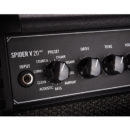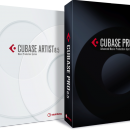Blurring Boundaries
Singer-songwriter and multi-instrumentalist John Kruth has released 12 solo albums and seven projects with his world music ensemble TriBeCaStan. The latest offering, The Folklorkestra’s A Strange Day In June was an experience that drew deeper performances from all involved. Known for his banshee mandolin and flute skills, the project showcases Kruth’s non-conformity to strict music protocols, offering an intriguing blend of Balkan, Middle Eastern, African, and Latin styles that defy categorization.
Elliott Sharp suggested Kruth apply for a grant in the face of a changing musical landscape and the result was a grant from the Chamber Music of America (CMA). Inspired by Kruth’s own life (“Tonk” is his pug’s nickname and “Madam Gonzo” was written as a tribute to a dear friend), Kruth aims to make musicians happy and bring out their best, sharing, “You want them inspired. You want to hand them something to run with. I wrote and arranged a lot of it, but the door was always open.”
All involved were former members of TriBeCaStan. Admits Kruth, “This album is paid for by Chamber Music of America, but it's got zydeco on it [and] my Pasadena neighbor who was a rock star in the '90s in China at the end of “Mariska” playing the two-string Mongolian guitar. He's singing to the ancestors… ‘Here we are down here, help us please. We know not what we do.’”
Half Hungarian, half Russian, with a Croatian partner, the Eastern European influence of Kruth’s music runs deep. “For me, it's Eastern European, gypsy, Klezmer to a certain extent. Mountain music could be from Appalachia, from Transylvania, it doesn't matter where it's from.” Tovi Horvath, Frank Sinatra, Dean Martin, Bob Dylan, the Beatles, Tim Buckley, Herbie Man, or Dizzy Gillespie’s Afro-Cuban jazz all had their influence, but a family trip to Jamaica in the third grade changed everything. “Three guys came around every day shaking maracas, playing guitar, and singing three-part harmony. That blew the door wide open,” reminisces Kruth.
Working with artists including the Violent Femmes, Sam Shepard, Patti Smith, John Prine, James Belushi, Elliott Sharp, John Lee Hooker, Bill Ward, and being exposed to a kaleidoscope of music in New York, Kruth is always looking for something different. “I don't speak a lot of different languages,” says Kruth. “I do with music and instruments. Each takes me to a different place, or pulls something else out of me. I'm not going to play on the flute what I play on the guitar,” shares Kruth.
“The banjo is going to take me to Appalachia, but could also take me to the desert because Moroccans play banjo. It's not clear cut, thinking about how I can mix Japanese music with Appalachian music. They’re both five-tone —you can break that down if you want. I'm going to minor keys on the mandolin for something mystical. Guitar is going to pull out something from Chuck Berry or blues or something. It was a revelation to play the mandolin and some kind of bluegrass hoedown and realize you could slip right into gypsy music,” Kruth says of his early days. “There wasn't anybody telling me no.”
Disappointed with most of today’s homogenous "margarine" music, Kruth shares that “Certain music is just designed as a commodity. It’s just so plastic. Real live music in a small club sounds very different and people that don't live with live music don't know what it is.”
As for theory, Kruth says, “Learn it, throw it away, and then you're free to express yourself. The idea is to continually move music forward. Learning to write rough lead sheets of notes with a flat or sharp sign next to them (and little else) from Ornette Coleman, he asked if the format caused collisions. Coleman replied, “Yeah, that’s where the good stuff happens.” A Strange Day In June is out now.
Contact Mark Gorney, worldisc@gmail.com. Visit kruthworks.com














